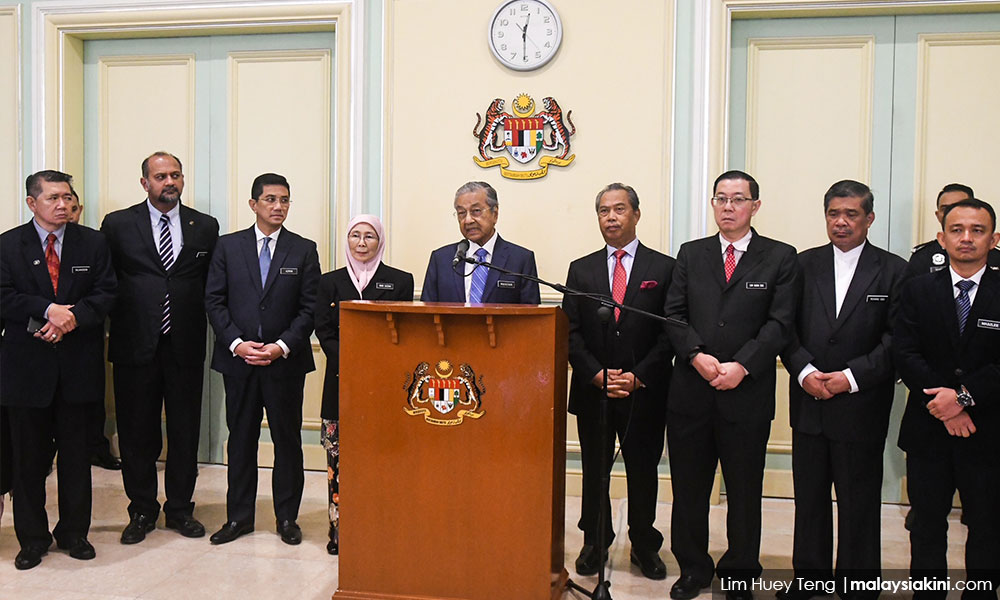
Malaysia needs to cultivate a strong opposition to prevent hardline stances among the opposition as well as a return to the domination of one coalition.
This is what Penang Institute fellow Wong Chin Huat advised, especially following the party "hoppers" who were joining Pakatan Harapan almost immediately after the May 9th election results.
"Even with Pakatan Harapan, a collection of long-suffering underdog parties, now in charge, the mass defections already are endangering Malaysia's democracy.
"The system risks swinging from being dominated by one overbearing coalition to being dominated by another overbearing coalition.
"Worse, post-election defections threaten democracy by suppressing political competition, both inside the new ruling coalition and outside it, and that in turn often induces the opposition to adopt more hardline positions," Wong said in an opinion piece published by the New York Times on Tuesday.
Defections and its dangers are familiar to Malaysian politics, he said.
Activists and Harapan leaders themselves now say that this phenomenon of crossing over violates the mandate given by the voters to their chosen party, Wong said.
There is also the danger of corrupting elements by accepting BN members into Harapan's folds, he said, pointing to former minister Rais Yatim's warning: "If Harapan accepts into its fold everyone who feels pushed into a corner, then it would create BN 2.0, with all its destructive behaviour."
Wong explained that BN had kept its grip on power for 61 years by compensating its waning competitiveness over the years with vote-buying patronage and repressing the opposition.
BN had also added seats in the federal and state level and redelineated voting districts to its advantage in order to overcome infighting, he said, as well as pacifying party members who weren't put up as candidates with government appointments or contracts.
Why the BN turned corrupt and illiberal
"So, yes, Barisan Nasional was corrupt and illiberal, but it became that way partly in response to structural features in Malaysia’s political system," he argued.
With the presence of a dominant and overbearing ruling coalition, Wong said this would also push opposition parties into hardline stances to remain relevant and viable.
Citing PAS as an example, he said the Islamist party had intensified calls for syariah law to be applied throughout the country, back in the 1980s, after Umno wrested away its stronghold state Kelantan in the late 1970s.
Umno, in response to this, rebranded itself as the champion for a modernist form of Islamisation.
"One result of this tug of war over how to promote Islam in politics is that if the notion of making syariah the official law of Malaysia was a fringe idea in the late 1980s, by 2013, 86 percent of Malaysian Muslims supported it, according to a study by the Pew Research Center," Wong said.
PAS has remained relevant even after the 14th general election, as it secured nearly 18 percent of the popular vote, 18 seats in the Dewan Rakyat and control of two state governments, Kelantan and Terengganu, he said.
"Though PAS had done better at the federal level in previous elections, these are impressive results considering that it joined forces with BN in recent years.
"It appears not to have been too tainted by the association. PAS now has little reason to moderate its core stances, and Umno may have more reason to endorse them," Wong said.
A similar thing may also happen in Sabah and Sarawak, he said, as BN's local component parties there may intensify their appeals for greater autonomy, which may someday perhaps lead to separatism.
Though Mahathir had said that defectors from BN would not automatically be granted formal membership in Harapan, Wong said this would only delay Harapan in becoming another dominant ruling coalition, unless a healthy opposition is cultivated.
To prevent Malaysia from turning into an electoral one-party state again, Wong said the Harapan government will have to eventually dismantle the country's "winner-takes-all" system.
The new government will have to create a proportional electoral system, decentralise and devolve more authority to the states and restore local council elections, he said.
This could also encourage opposition parties to be more moderate as it will enable them to have more access to executive powers and resources.
"In the meantime, Malaysians must realise that there can be no good
government if there is no good opposition.
"And Pakatan Harapan must realise that the best thing it can do for Malaysia’s democracy is what BN never did: protect its adversaries," he said. -Mkini
No comments:
Post a Comment
Note: Only a member of this blog may post a comment.